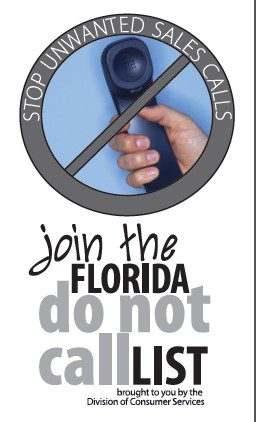 Writing a lifestyle column is fun: we concentrate mostly on food, wine, cigars and all things pleasurable. In essence it deals with the pursuit of our individual happiness which regretfully every once in a while someone decides to disturb. It is worst when the intrusion happens within the sanctity of your home, when you get repeated uninvited telephone calls for the sole purpose of promoting or selling a person, an item or a thing. These calls impact our chosen way of life and could be covered in a lifestyle column.
Writing a lifestyle column is fun: we concentrate mostly on food, wine, cigars and all things pleasurable. In essence it deals with the pursuit of our individual happiness which regretfully every once in a while someone decides to disturb. It is worst when the intrusion happens within the sanctity of your home, when you get repeated uninvited telephone calls for the sole purpose of promoting or selling a person, an item or a thing. These calls impact our chosen way of life and could be covered in a lifestyle column.
Back when we referred to the prefix of telephone numbers in Miami as Franklyn or Plaza, most telephone calls were welcomed. They were usually from relatives or friends inquiring about our well being or the latest news and/or gossip that had not yet hit the main radio or television news hour.
Soon after, as we became more sophisticated and our telephone numbers increased in size, telemarketers started their quest to make our lives miserable. For a period of time you could almost count on receiving a sales call as you were getting ready to sit at the dinner table. The selling of timeshares became almost synonymous with those uninvited calls that ruined your evening. We probably received more of those calls here in Florida than anywhere else in the country.
For this reason, Florida became one of the first if not the first state in the nation to pass legislation regulating telemarketers. Eventually, our state legislators passed the Florida Do Not Call Program. For a $10 fee, Florida residents who do not wish to receive sales calls may have their numbers on this list managed by the Florida Division of Consumer Services.
A most useful tool when used properly is the robocall. A robocall is a telephone call from an automated source that delivers a prerecorded message to a large number of people. The city of Coral Gables uses it properly to alert its residents of emergencies or when there is a missing elderly person or child. It is used improperly by politicians during campaigns to deliver the same message to the same person several times in a few hours. This is an intrusion in our lives, privacy and lifestyle.
Within the last two weeks of this heated campaign in Miami Dade County, we have heard several stories from residents who have received more than 45 calls over a three day period from basically three candidates. We have heard about a family eagerly awaiting an emergency call and receiving consecutive political robocalls that only aggravated the situation. These calls are out of control and need to be regulated.
While not fully understanding the Florida Do Not Call Statute, there seems to be something wrong.
According to the Florida Department of Agriculture and Consumer Services, Division of Consumer Services web page http://www.800helpfla.com/nosales.html , there are some exemptions to the law. These exemptions as stated on the site are based in that “some solicitations calls are not “telephonic sales calls” as defined in the statute because they typically are not selling a product or service”. I believe most of us would consider these political robocalls as inconvenient and obnoxious as telemarketing sales pitches. With these political calls, someone is selling a product and service that should not qualify for the exemption of a “political candidate and political parties seeking donations”.
The purpose of the Florida Do Not Call Program is to prevent a sales person from harassing and disturbing residents, which is what these political robocalls are doing. Florida legislators who created and can amend this law should examine their political colleagues’ tactics and close this annoying loophole, for they are disturbing our lifestyle.
To Join the Florida Do Not Call Program, call 1-800-435-7352 to receive an application or go to the Division of Consumer Services Website, http://www.800helpfla.com/nosales.html to download the application or join on-line.






